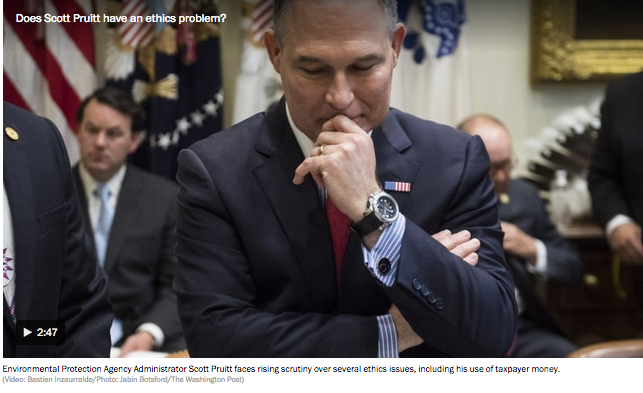On the morning of April 1, 2017, Environmental Protection Agency appointee Mandy Gunasekara welcomed to her office a team of lobbyists representing the makers of portable generators.
For months, the Portable Generators Manufacturers’ Association had been trying to block federal regulations aimed at making its product less dangerous. The machines — which are used by many Americans during power outages after severe storms — emit more carbon monoxide than cars and cause about 70 accidental deaths a year.
Just before President Barack Obama left office, the Consumer Product Safety Commission had voted to force the industry to make generators that emit lower levels of the poisonous gas. Now industry lobbyists were warning Gunasekara of “a potential turf battle . . . brewing” between the commission and the EPA, which traditionally regulates air emissions from engines.
Less than six weeks later, EPA Administrator Scott Pruitt sent a letter informing Ann Marie Buerkle, the commission’s acting chair, that his agency had primary jurisdiction over the issue. Just over three months later, Buerkle delayed regulations that had been almost 15 years in the making and opted instead for voluntary standards.
The communication between the lobbyists and one of Pruitt’s top policy aides — detailed in emails the agency provided to Democratic Sens. Bill Nelson (Fla.) and Thomas R. Carper (Del.) — open a window on the often close relationship between the EPA’s political appointees and those they regulate. Littered among tens of thousands of emails that have surfaced in recent weeks, largely through a public records lawsuit filed by the Sierra Club, are dozens of requests for regulatory relief by industry players. Many have been granted.




